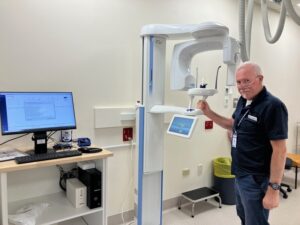
Recent research has unveiled a groundbreaking blood test that could provide a reliable method for detecting Myalgic Encephalomyelitis/Chronic Fatigue Syndrome (ME/CFS). Conducted by a team at Stanford University, the study involved approximately 300 participants and aims to improve diagnostic accuracy for this often-misunderstood condition.
The study’s findings, released in 2023, highlight the potential for a simple blood test to identify ME/CFS, a condition that affects millions worldwide. Traditionally, diagnosing ME/CFS has been challenging due to a lack of definitive tests, leading to misdiagnoses and delayed treatment for those suffering from debilitating symptoms.
Research led by Dr. David S. Bell, a prominent figure in ME/CFS research, utilized advanced genomic and proteomic analyses to pinpoint specific biomarkers associated with the illness. The results showed a promising 60% accuracy rate in identifying individuals with ME/CFS, a significant step towards more reliable diagnostics.
Understanding ME/CFS and Its Challenges
ME/CFS is characterized by profound fatigue that does not improve with rest, along with a range of other symptoms including cognitive difficulties, sleep disturbances, and muscle pain. The complexity of the condition has long been a barrier to effective diagnosis and treatment. According to the National Institutes of Health (NIH), millions of people globally suffer from ME/CFS, yet many remain undiagnosed or misdiagnosed.
The introduction of a blood test could change the landscape of ME/CFS management. Currently, healthcare providers rely on a combination of patient history and symptom evaluation, which can often lead to inconsistencies in diagnosis. The identification of specific biomarkers presents an opportunity for a standardized testing approach, offering hope for improved patient outcomes.
Implications of the Study
The implications of this study are significant for both patients and healthcare providers. As Dr. Bell noted, “The ability to diagnose ME/CFS through a blood test would not only validate the experiences of patients but also pave the way for targeted treatments.” The research team is optimistic that further refinement of the test could lead to even higher accuracy rates, enhancing its utility in clinical settings.
Despite the promising results, experts caution that more extensive studies are needed to confirm the findings and establish the test’s reliability across diverse populations. Future research will focus on increasing the accuracy rate and exploring the test’s application in routine medical practice.
The potential of a blood test for ME/CFS represents a crucial development in the recognition and treatment of the disorder. If successful, this advancement could provide millions with a clearer understanding of their condition and access to appropriate care. As the field of ME/CFS research continues to evolve, the hope remains that such innovations will lead to better outcomes for affected individuals.





